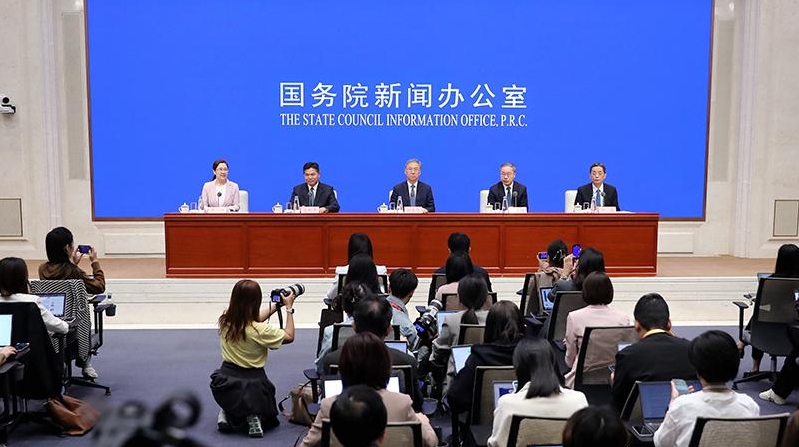Beijing Youth Daily:
Just now, the MOHRSS provided an overview of the current employment situation. I'd like to ask about the large-scale vocational training programs you mentioned earlier. Can you provide more details on the specific measures? How is this work progressing? Thank you.
Yu Jiadong:
Thank you for your interest in vocational training programs. To implement the decisions and plans of the CPC Central Committee and the State Council and respond to the current employment situation, the MOHRSS is working with relevant departments to launch large-scale vocational training programs under the "Skills Illuminate the Future" campaign.
First, we will take an employment-focused approach to make vocational training more targeted. From this year to 2027, we will focus on sectors with substantial employment capacity and strong hiring demand, including elderly care and childcare services, advanced manufacturing, modern services, and emerging occupations. At the same time, we will target key groups, such as rural migrant workers and college graduates seeking employment, to make training programs more targeted and effective. Meanwhile, we will integrate training into industrial chains, leverage enterprises' leading role in training, and create a skills ecosystem that connects industry, education and assessment to promote the integrated development of enterprise employee training, student employment placement, and workforce skill advancement.
Second, we will strengthen policy incentives to boost training enthusiasm among enterprises and workers. We will coordinate employment subsidy funds, unemployment insurance funds, and other funding sources to implement a high-skilled talent development program. This will include establishing high-skilled talent training centers, skills practice facilities, and master craftspeople workshops at qualified enterprises to leverage their leading role in skills training. We will support vocational training for key groups, encourage enterprises to foster high-skilled talent, implement targeted subsidy policies, and boost workers' intrinsic motivation to participate in training.
Third, we will implement the "new eight-level vocational skill rating" system to create smoother pathways for workers to improve their skills and achieve greater success. We will encourage workers to undergo vocational skill level evaluations upon completing their training. Those who earn the relevant professional qualification certificates, or obtain vocational skill level certificates while meeting the eligibility criteria, will receive skill improvement subsidies in accordance with regulations to boost their competitiveness in the job market. Enterprises are encouraged to conduct vocational skills evaluations independently. By promoting the evaluation and appointment of chief technicians and special-grade technicians, companies will be guided to support employees in enhancing their vocational skill levels. Leading enterprises within the vocational skills ecosystem can function directly as vocational skill evaluation institutions. They will conduct skill assessments for employees throughout the production chain, issue vocational skill level certificates, and provide corresponding benefits in compliance with relevant regulations.
Fourth, we will improve the distribution system to promote skill-based income growth for workers. We will establish a skill-based salary distribution system and develop a minimum wage classification reference guide for skilled professionals. This will encourage enterprises to use vocational skill levels as a key factor in determining wages, promoting wage structures that prioritize critical roles, frontline production staff, and urgently needed skilled talent. We will guide enterprises to establish performance-based pay systems. This will align with vocational skill levels (positions). It will enable those who work more, as well as those with higher skills, and those who are willing to innovate to earn more.
Recently, the Ministry of Human Resources and Social Security, together with the NDRC, the Ministry of Civil Affairs, the Ministry of Commerce, and the Medical Insurance Bureau, issued special training programs for workers in elderly care services, domestic services, and long-term care. Going forward, more programs will be developed jointly with other departments, tailored to specific industries and sectors. Local human resources and social security departments are releasing catalogs of training institutions and training projects in accordance with the requirements of the Ministry of Human Resources and Social Security, all to provide guidance for workers so they can participate in training.
Next, we will step up efforts to actively build a system for promoting lifelong vocational skills training.This will enable high-quality and sufficient employment. We will do so through the implementation of a package of measures, all working towards boosting employment, strengthening incentives, supporting growth, and raising incomes through skills. This will encourage and clearly guide workers to participate in training and improve their skills. In turn, they will be able to secure better jobs and build a brighter future with their expertise. Thank you.


 Share:
Share: 




 京公网安备 11010802027341号
京公网安备 11010802027341号